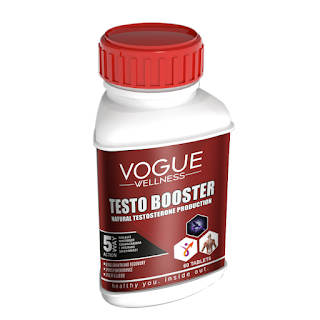The 11 Best Ways to Naturally Improve Your Digestion: A Comprehensive Guide
Digestion is the process by which the body breaks down food into smaller molecules that can be absorbed and utilized for energy, growth, and repair. It involves both mechanical and chemical processes that occur in the gastrointestinal tract.
The digestion process begins in the mouth, where food is chewed and mixed with saliva, which contains enzymes that initiate the breakdown of carbohydrates. The food then travels down the esophagus and enters the stomach. In the stomach, the food is further broken down by stomach acids and enzymes.
From the stomach, the partially digested food moves into the small intestine. Here, enzymes from the pancreas and the small intestine break down proteins, fats, and carbohydrates into smaller molecules, such as amino acids, fatty acids, and simple sugars. These nutrients are then absorbed through the lining of the small intestine into the bloodstream.
The remaining undigested food, along with water and waste products, moves into the large intestine. In the large intestine, water is absorbed, and beneficial bacteria in the gut help break down any remaining undigested material. The waste products, known as feces, are formed and stored in the rectum until they are eliminated from the body through the process of defecation.
Digestion is a complex process that requires the coordinated action of various organs, including the mouth, esophagus, stomach, pancreas, liver, gallbladder, and intestines. It relies on the secretion of enzymes, acids, and hormones to break down food and extract nutrients. Proper digestion is crucial for nutrient absorption and overall health.
Factors such as diet, lifestyle, stress, and certain medical conditions can affect digestion. Common digestive problems include indigestion, acid reflux, bloating, constipation, and diarrhea. Maintaining a healthy diet, managing stress, staying hydrated, and adopting good eating habits can support proper digestion and promote overall digestive health.
Good digestion is essential for overall well-being and optimal health. However, many factors in our modern lifestyle can disrupt the digestive process, leading to discomfort and digestive problems. Fortunately, there are several natural and effective ways to improve digestion. In this comprehensive guide, we will explore the 11 best methods to naturally enhance your digestion, allowing you to enjoy better gut health.
Eat a High-Fiber Diet:
A high-fiber diet promotes regular bowel movements and helps prevent constipation. Include plenty of fruits, vegetables, whole grains, legumes, and seeds in your meals. These fiber-rich foods add bulk to your stool, aiding its passage through the digestive tract and promoting a healthy gut environment.
Stay Hydrated:
Proper hydration is essential for optimal digestion. Drink an adequate amount of water throughout the day to support the digestive process. Water helps soften stools, facilitates nutrient absorption, and aids in the smooth movement of waste through the intestines.
Chew Your Food Thoroughly:
Proper chewing is often overlooked but plays a significant role in digestion. Thoroughly chewing food breaks it down into smaller particles, making it easier for the digestive enzymes in your saliva to start the breakdown process. Take your time while eating and try to chew each bite until it becomes a paste before swallowing.
Manage Stress:
Chronic stress can negatively impact digestion. Practice stress-management techniques like meditation, deep breathing exercises, yoga, or engaging in hobbies to reduce stress levels. Relaxation techniques help activate the parasympathetic nervous system, which supports optimal digestion.
Consume Probiotic-Rich Foods:
Probiotics are beneficial bacteria that support a healthy gut microbiome. They help maintain a balanced gut environment, aid in nutrient absorption, and support digestion. Incorporate probiotic-rich foods into your diet, such as yogurt, kefir, sauerkraut, kimchi, and other fermented foods. These foods contain live cultures of beneficial bacteria that can enhance digestive health.
Limit Processed Foods and Sugar:
Processed foods are often low in fiber and high in unhealthy fats, artificial additives, and refined sugars. These can disrupt the balance of gut bacteria and lead to digestive issues. Opt for whole, unprocessed foods that are rich in nutrients and fiber to support proper digestion. Minimize your intake of sugary snacks, desserts, and sugary beverages.
Incorporate Digestive Herbs and Spices:
Certain herbs and spices have natural digestive properties that can aid in digestion and alleviate digestive discomfort. Ginger has been used for centuries to soothe the digestive system and reduce nausea. Peppermint can help relax the muscles of the gastrointestinal tract, relieving symptoms like bloating and gas. Fennel, chamomile, and turmeric are also known for their digestive benefits.
Exercise Regularly:
Physical activity promotes healthy digestion by increasing blood flow to the digestive organs, stimulating intestinal contractions, and reducing constipation. Engage in regular moderate exercise, such as walking, jogging, swimming, or cycling, for at least 30 minutes most days of the week to support optimal digestion.
Practice Mindful Eating:
Mindful eating involves paying attention to the entire eating experience, including the taste, texture, and smell of the food. It helps you connect with your body's hunger and fullness cues and promotes better digestion. Avoid eating in a rushed or stressed state, as it can interfere with proper digestion. Instead, create a calm and peaceful environment for your meals.
Limit Alcohol and Caffeine Intake:
Excessive alcohol consumption and high caffeine intake can irritate the gastrointestinal tract and disrupt digestion. Alcohol can lead to acid reflux, inflammation of the stomach lining, and impaired nutrient absorption. Caffeine.
Get Sufficient Sleep:
Adequate sleep is crucial for optimal digestion. Aim for 7-8 hours of quality sleep each night. Sleep deprivation can negatively impact digestion and lead to issues like acid reflux and irregular bowel movements.
Include Prebiotic Foods: Prebiotics are non-digestible fibers that serve as food for beneficial gut bacteria. Incorporate prebiotic-rich foods like onions, garlic, bananas, oats, and asparagus into your diet. These foods nourish the good bacteria in your gut and support healthy
Conclusion:
Improving digestion naturally is within reach with these 11 effective strategies. By adopting a high-fiber diet, staying hydrated, managing stress levels, and incorporating probiotics.
.png)



Comments
Post a Comment